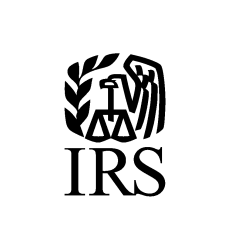Top Class Actions’s website and social media posts use affiliate links. If you make a purchase using such links, we may receive a commission, but it will not result in any additional charges to you. Please review our Affiliate Link Disclosure for more information.

If you paid the IRS a fee to obtain or renew your PTIN, your rights may be affected by this PTIN class action lawsuit.
The PTIN fee class action lawsuit was filed in 2014 by two accountants who alleged it was unlawful for the IRS to charge a fee to apply for or renew a PTIN.
Like a Social Security number, a PTIN is unique to each tax filer and does not change from year to year.
The PTIN class action lawsuit alleges the IRS changed its policy in 2010 and instituted a PTIN fee. The federal agency also allegedly imposed strict penalties against tax preparers who did not pay the PTIN fee.
According to the PTIN fee class action lawsuit, the IRS set PTIN fees in 2010 at $64.25 and $63, and in November 2015 at $50.
The plaintiffs have asked the court to order the IRS to stop imposing PTIN fees. They are also seeking the recovery of either all of the PTIN fees that they have paid or the excessive portion of the PTIN fees.
The PTIN class action lawsuit asserts that the IRS does not have the authority to charge a PTIN fee because the tax return preparers receive only an identifying number and no additional benefit.
The plaintiffs state that, even if the court finds the IRS is permitted to charge the PTIN fee, the fee is higher than permissible because the fees exceed the cost incurred by the IRS to issue a PTIN.
In September 2015, the plaintiffs asked a Washington D.C. federal court to grant certification of the PTIN class action lawsuit.
Last month, U.S. District Judge Royce C. Lamberth certified a Class of individuals or entities that paid a fee for the application or renewal of a PTIN on or after Sept. 30, 2010.
The court has not made a determination about the PTIN fees, including whether they were unlawful, authorized or excessive.
There is currently no money available to Class Members and no guarantee that money will be available in the future.
A website has been established with more information about the PTIN class action lawsuit. If you wish to opt out of the PTIN class action lawsuit, you must do so no later than Dec. 7, 2016.
For more information about the litigation and how to ask to be excluded, visit www.PTINClassAction.com.
Top Class Actions will post updates to this IRS class action lawsuit as they become available. Keep checking TopClassActions.com or sign up for our free newsletter for the latest updates. You can also receive notifications when this article is updated by using your free Top Class Actions account and clicking the green “Follow Article” button at the top of the post.
The plaintiffs are represented by Motley Rice LLC, The Law Office of Allen Buckley LLC, Gupta Wessler PLLC and Caplin & Drysdale.
The IRS PTIN Fee Class Action Lawsuit is Adam Steele, et al. v. United States of America, Case No. 1:14-cv-01523, in the U.S. District Court for the District of Columbia.
UPDATE: On June 1, 2017, a federal judge found that the IRS does not have authority over tax return preparers and must refund PTIN fees.
ATTORNEY ADVERTISING
Top Class Actions is a Proud Member of the American Bar Association
LEGAL INFORMATION IS NOT LEGAL ADVICE
Top Class Actions Legal Statement
©2008 – 2024 Top Class Actions® LLC
Various Trademarks held by their respective owners
This website is not intended for viewing or usage by European Union citizens.















3 thoughts onIRS PTIN Fee Class Action Lawsuit Moves Forward
How do I know if I paid PTIN fees when I had my taxes done?
UPDATE: On June 1, 2017, a federal judge found that the IRS does not have authority over tax return preparers and must refund PTIN fees.
IRS AUDITS: How long before the Average TaxPayer (ATP) is provided Legal Representation at little or no cost (same as any criminal)? Just about every high paid individual and Corporation is able to write off all expenses of as a Deductible expense! Where as the ATP can’t afford the cost and has limited use of the deductible expense on Schedule A.
How about Level the Playing field???? THJTAX